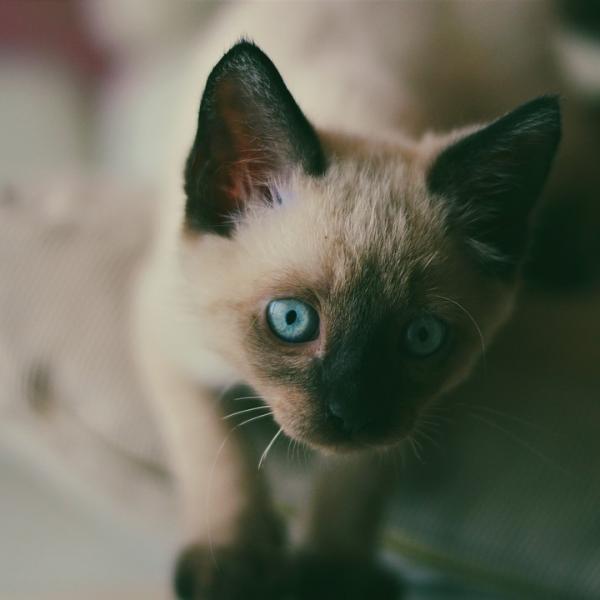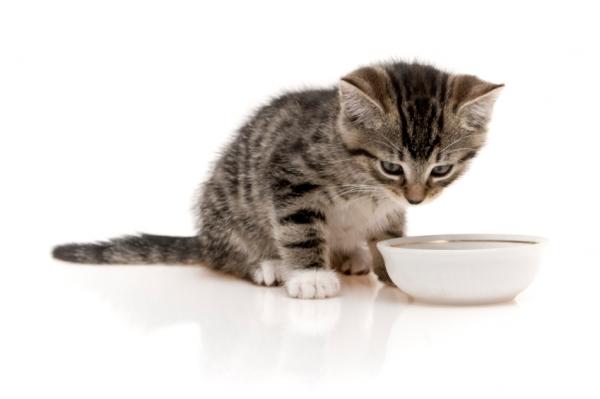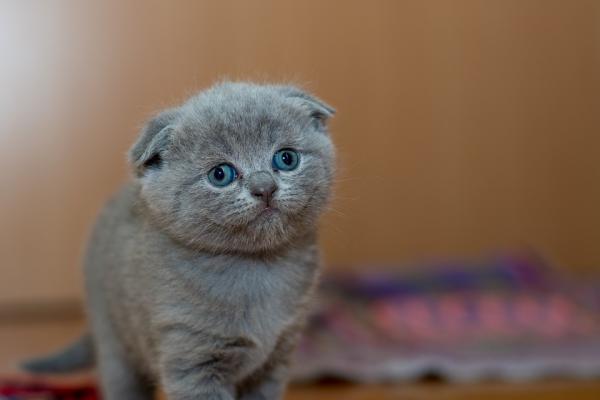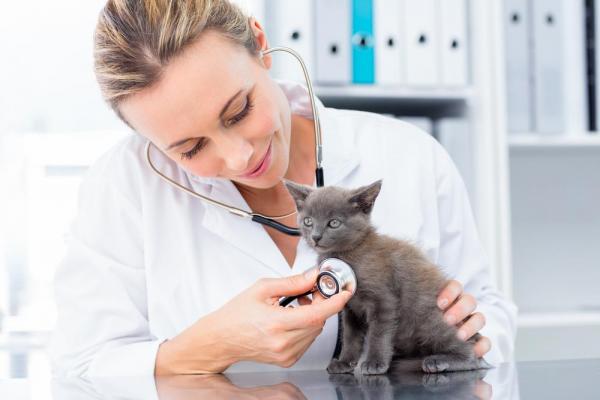My kitten has diarrhea, what should I do?

It may be that your kitten has a sensitive stomach, an intestine that does not tolerate sudden changes in diet or something outside of their diet that has caused the diarrhea. There are also foods that can be toxic or harmful to your cat.
In general there are many reasons why these children can get sick and suffer from diarrhea, however, the most advisable is go to the vet, especially if the cat is very small since the risk of dehydration is very high.
We want to help you detect the causes and prevent future episodes that cause discomfort to your animal. Today we will focus on My kitten has diarrhea, what should I do?
Kitty feeding
In this section we will talk about the importance of feeding our little cat. We must consider age and weight to choose the most indicated food, always helping us from the veterinary advice. Remember that feeding a newborn kitten is not the same as a cat that has already started on solid feeding.
If we know the origin of our child we will know how to continue feeding but it will be very important to go to the veterinarian if we do not know his situation or we have found him lost or orphaned.
Remember that.
We should point out that cats only take breast milk or substitute until the 5 weeks of life, since at 4 weeks we should start to incorporate the feed or homemade food progressively. After they stop drinking milk because their intestine physiologically loses an enzyme that is responsible for breaking the bonds of milk so that it can become a nutritious food. For this reason, sometimes, we will have diarrhea in adults if we offer them milk.
Respecting weights, age and number of daily doses, we should not have digestive problems, diarrhea and / or vomiting. Anyway, before the appearance of any of these symptoms, go immediately to a veterinarian will be essential because the kittens have a very sensitive body and we run risks of dehydration that will bring into play the kitten’s life.

What should not my kitten eat?
- Milk: when it was weaned, no mammal after being weaned should drink milk because our digestive system generates intolerance and rejects it.
- Chocolate: the theobromine that it contains is the toxic substance for our cat (small or adult) generates not only diarrhea but also cardiac acceleration.
- Coffee and tea: Many times we are tempted to lick our coffee cup with the milk frothy that was left in the bottom. Double problem: milk and coffee that has stimulants of the nervous system.
- Avocado: It has a toxin called persin that generates problems in most pets at the digestive and renal level.
- Alcohol: causes urinary incontinence, respiratory failure and gastrointestinal problems, depending on the amount ingested.
- Onion and raw garlic: disorders at blood level.

Home risk: toxic plants?
Sometimes we are living with the enemy without even knowing it. We believe that if our pussycat wants to eat grass to purge, due to an excess of fats in his diet, that’s fine. Neither is it necessary to eat them, often just with playing or scrubbing in them we have symptoms that can be lethal.
We must be attentive to what plants we have at home and before the doubt, resort with the names to our veterinarian, sometimes we must take out of the reach of our kitten certain plants to not have to regret it later. We will provide a list of the most common for us to review at home that are not in some corner waiting for your victim:
- Poinsettia or Flor de pascua: it is the typical plant with red flower that is placed in Christmas in many homes. If our little one ingests or chews it will affect his digestive system presenting vomiting and diarrhea.
- Ivy: It can cause only skin contact allergies, even reaching blisters and / or skin ulcers. In cases of ingestion there may be gastrointestinal disorders, muscle spasms and, in very small animals, eat with a difficult recovery.
- Hydrangea: Ingestion causes general malaise with diarrhea and vomiting.
- Lily: Also like the previous ones it has gastrointestinal symptoms along with arterial hypertension.
- Tulip: its bulb is extremely toxic with digestive consequences.
- Mistletoe: very common for these Christmas seasons and the ingestion of its fruits is highly toxic for our pets, giving abdominal pain, diarrhea, vomiting, salivation and excessive thirst. But the most worrisome are the neurological and / or cardiac sequels that our cat may have.
We know that the partial or total ingestion of any of these plants by our little kitten and, in cases that we already observe symptoms is urgent and should be taken to a veterinarian to evaluate it and thus avoid sequelae. Finding out about the plants we have in the home is usually the best prevention to avoid possible “tragedies”. It is part of providing a safe home for our pet.
Other causes
Our kitten can also suffer other health problems that cause diarrhea, such as allergies or gastroenteritis, among others. The veterinarian will give us the exact answer to the diarrhea that our kitten is suffering, do not forget it.

This article is merely informative, in .com we do not have the faculty to prescribe veterinary treatments or make any kind of diagnosis. We invite you to take your pet to the veterinarian in case of any type of condition or discomfort.
If you want to read more articles similar to My kitten has diarrhea, what should I do?, we recommend that you enter in our section of intestinal problems.


